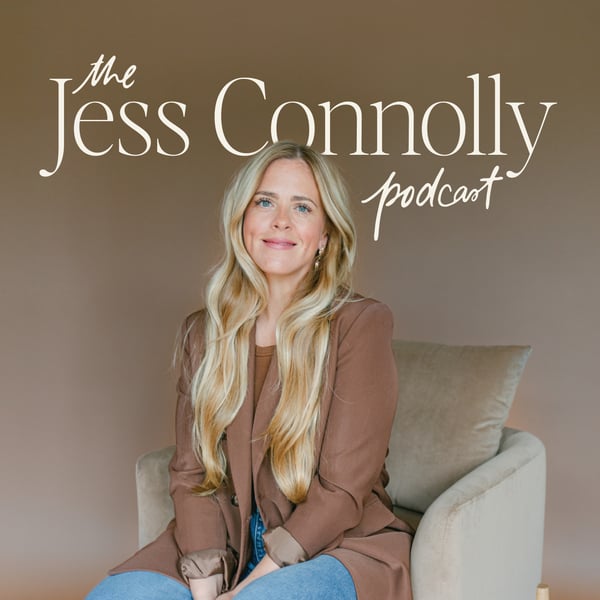Episode 87: Justice + Injustice
The Jess Connolly Podcast
Jess Connolly
4.8 • 813 Ratings
🗓️ 29 April 2021
⏱️ 23 minutes
🧾️ Download transcript
Summary
You can’t turn on the news without seeing injustice. You can't scroll social media without hearing about injustice. How do women of mission respond to injustice? What do we do? How do we use what we’ve got for the good of others and the glory of God, all the while knowing that we are placed exactly where we’re supposed to be so that we can respond to injustice right now?
In this conversation with Jess and Kennesha, we’re defining what justice is and what justice is not. We’re looking to the justifier - Jesus - to teach us how to love people best. And we’re talking action steps for going forward, because we know that what has limited you in the past does not have to limit you now. You can have God’s capacity to love the things He loves. Let it be in us, God.
LIsten in on this conversation (this is only the beginning for us!), and know this: we’re on your team. We’re with you. We’re curious, we’re hopeful, we’re ready, we’re lamenting, and we’re prayerful. You have a friend, and we are with you.
We quote three of our friends in this episode, and we want to make sure you follow these incredible women!
- Give our friend KJ Ramsey a follow. She's an incredible writer, and we're so grateful for her voice.
- Bernice King is a powerhouse, and she's giving us the words we need to hear. Her words in the injustice conversation have encouraged and equipped us.
- And we also talk about Osheta Moore's peacemaker vs. peacekeeper idea. She's another amazing friend of ours - give her a follow to glean from her wisdom.
Some of our top book recommendations on injustice:
Reading While Black by Esau McCaulley
The Color of Law by Richard Rothstein
How to Fight Racism by Jemar Tisby
Transcript
Click on a timestamp to play from that location
| 0:00.0 | Hey friends. |
| 0:10.0 | We are here for a semi-unplanned, hopefully unfiltered, hopefully also helpful in life-giving, quick podcast episode. |
| 0:20.3 | Kanisha and I got together last week and said, |
| 0:24.2 | hey, you cannot turn on the news. You can't walk outside of your house. You certainly can't turn |
| 0:30.2 | on social media without being faced with a ton of injustice. And what we know is that injustice doesn't live in the news. It's also not |
| 0:39.6 | anything new. But we just said, what would it be like if we could get together and host a quick |
| 0:44.3 | podcast episode saying, okay, how do women of mission respond to injustice? What do we do? |
| 0:51.7 | What does it look like for us to not only be women who say, we're going to use |
| 0:55.4 | what we've got for the good of others and the glory of God, but also we're going to believe |
| 0:59.3 | that God's placed us where we're at on purpose so that we can respond to injustice in our time, |
| 1:04.4 | so we can be his hands and his feet. And we pray that this conversation only sparks more conversations right where you're at |
| 1:13.0 | and also is a soft place for you to land as you find some things in your own heart, in your |
| 1:19.1 | own mind, in your own lives in ways that you can respond because that's absolutely what |
| 1:23.7 | we feel called to do as well. So let's start there. Yeah, let's do it. We, this will not be an |
| 1:32.4 | exhaustive conversation. As we both know, there is no way that we could have a 20 minute |
| 1:37.6 | conversation about this, but I do hope, like you said, that it is encouraging and helpful to |
| 1:43.2 | those who listen. So I think when I was thinking |
| 1:46.3 | about just justice in general and injustice, which is what we hear so much about now, I think that |
| 1:53.9 | it's so important to, first of all, define what justice is. And then talk about what justice is not. |
| 2:00.1 | So talking about the opposite of justice, |
| 2:02.6 | which is injustice. And, you know, as women of mission, people of purpose, those who love Jesus |
| 2:09.1 | and follow him, I think it's really easy sometimes to get caught up in what the world says |
... |
Please login to see the full transcript.
Disclaimer: The podcast and artwork embedded on this page are from Jess Connolly, and are the property of its owner and not affiliated with or endorsed by Tapesearch.
Generated transcripts are the property of Jess Connolly and are distributed freely under the Fair Use doctrine. Transcripts generated by Tapesearch are not guaranteed to be accurate.
Copyright © Tapesearch 2025.

